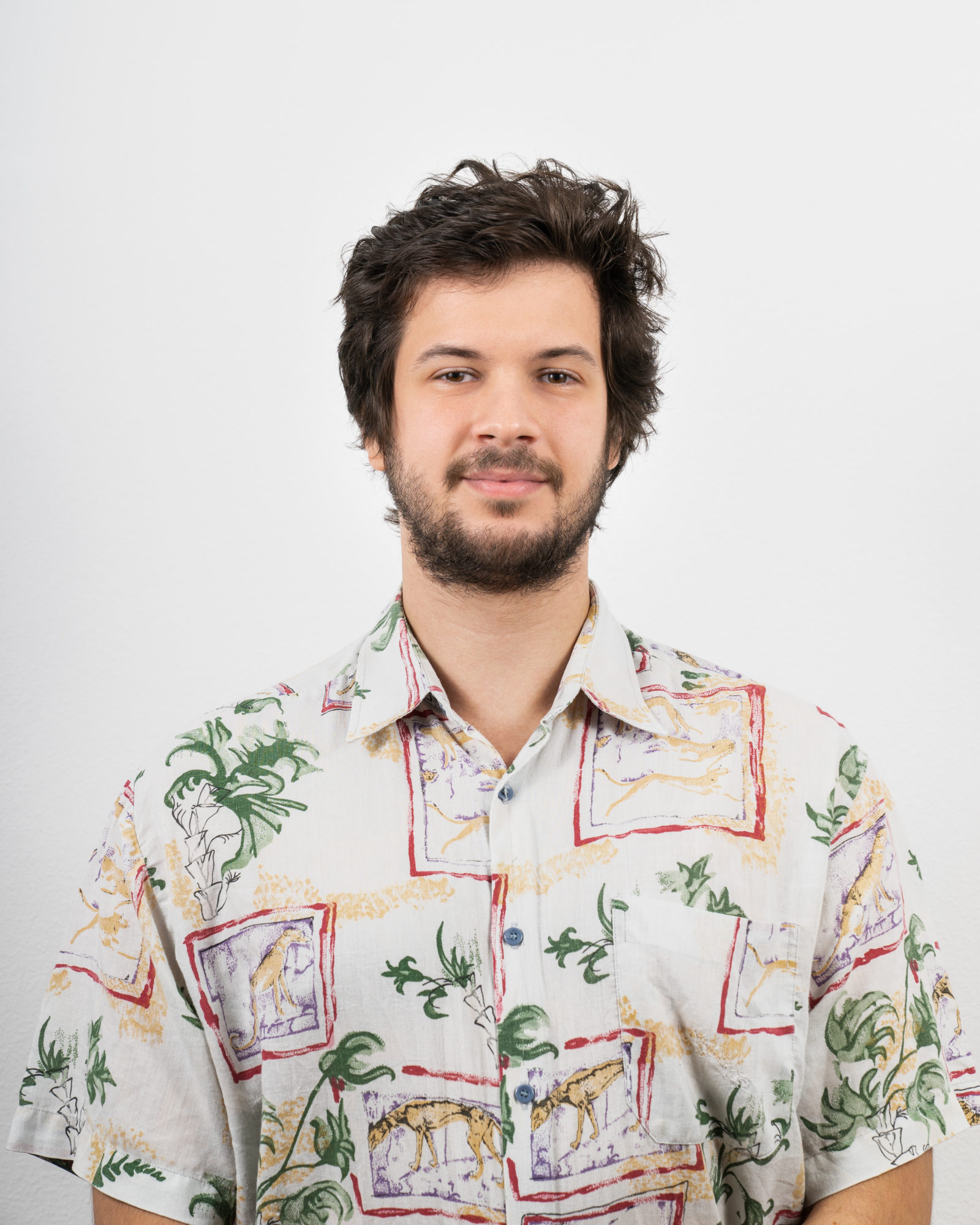
Zaccharie Ramzi
PHD STUDENT
| Contact Information | |
| E-mail: | zaccharie.ramzi [at] cea [dot] fr |
| Phone: | |
| Office: | |
| Affiliation: | NeuroSpin/ DAP/ Inria |
| Supervisors: | |
| Website: | |
You can find more up-to-date info on my website: zaccharieramzi.fr.
Research Interests
Deep learning for MR image reconstruction
My PhD will be focused on designing the best neural network architecture for MR image reconstruction from undersampled data. MR image reconstruction basically consists in doing an inverse Fourier transform from undersampled (in the sense of Nyquist-Shannon) Fourier data. The theory of compressed sensing tells us it's possible if the original data has some sparsity (or at least compressibility) in a particular domain, be it the wavelet decomposition or the TV.
The design of such networks can be heavily inspired by classical non-linear iterative approaches. Namely, the idea is to unroll optimisation algorithms and learn parts that are usually manually crafted.
Convex Optimisation for non smooth inverse problems
In order to understand the current state of the art of MR image reconstruction, I need to understand how the current compressed sensing strategies work. It involves solving an inverse problem via convex non smooth optimisation.
Posters
- Density-compensated unrolled networks for non-Cartesian MRI reconstruction, ISBI, Nice, France, 2021 (poster, code) - held virtually.
- Denoising Score-Matching for Uncertainty Quantification in Inverse Problems, NeurIPS Workshop on Deep Learning and Inverse Problems, Online, December 2020 (poster, code).
- Probabilistic Mapping of Dark Matter by Neural Score Matching, NeurIPS Workshop on Machine Learning and the Physical Sciences, Online, December 2020 (poster, code). (Not first author).
- Benchmarking Deep Nets MRI Reconstruction Models on the FastMRI Publicly Available Dataset, ISBI, Iowa City, IO, USA, April 2020 (poster, code) - held virtually.
- Benchmarking proximal methods acceleration enhancements for CS-acquired MR image analysis reconstruction, SPARS, Toulouse, France, July 2019 (poster, code).
Orals
- Wavelets in the Deep Learning Era, Eusipco, Amsterdam, Netherlands (ended up online), January 2021 (paper, code).
Journal publications
- State-of-the-art Machine Learning MRI Reconstruction in 2020: Results of the Second fastMRI Challenge, IEEE Transactions on Medical Imaging, submitted (paper). (Not first author)
- PySAP: Python Sparse Data Analysis Package for multidisciplinary image processing, Astronomy and computing, July 2020 (paper, code). (Not first author).
- Benchmarking MRI Reconstruction Neural Networks on Large Public Datasets, MDPI applied sciences, March 2020 (paper, code).
Other published works
- XPDNet for MRI Reconstruction: an Application to the fastMRI 2020 Brain Challenge, not peer reviewed, October 2020 (paper, code).
Talks
Past:
-
Denoising Score Matching for Uncertainty Quantification in Inverse Problems, Application to gravitational lensing and Magnetic Resonance Imaging with Benjamin Remy, for the Machine Learning Club, Nov 18th 2020, online (video).
-
XPDNet for MRI Reconstruction: an Application to the fastMRI 2020 Brain Challenge, for the Medical Imaging meets NeurIPS Workshop, Dec 11th 2020, online.
-
Wavelets in the Deep Learning Era, at EUSIPCO, for the Interpretable
Machine Learning session, Jan 19th 2021, online.
- XPDNet for MRI Reconstruction: an Application to the fastMRI 2020 Brain Challenge, for Le Seminaire Palaisien, Feb 2nd 2021, online.
Challenges
- fastMRI 2020 challenge: runner-up in the 4x and 8x supervised tracks in the radiologist rankings. This challenge focused on reconstructing brain MR images, retrospectively periodically under-sampled in the multi-coil setting. My solution, the XPDNet, allowed me to secure the 2nd spot, and is the first solution among those with an open source implementation and from academia.
- TReNDS Neuroimaging kaggle challenge: top 2% reached with a team composed of fellow Inria-Parietal PhD students.
Teaching
- Teaching assistant in charge of Python practical sessions, IUT Orsay (2019).
Reviews
I reviewed submissions for the following conferences:
- Eusipco 2019 (4 5-Page Papers)
- ISBI 2020 (3 4-Page Papers)
- Eusipco 2020 (3 5-Page Papers)
And for the following journals:
- Medical Image Analysis (1 Research Paper)
- IEEE Transactions on Computational Imaging (1 Research Paper)
Code
Most of my code is open source on GitHub. In particular, you can find a list of all the neural networks I have implemented during my thesis in my model zoo.
Press
Other institutes I work at
In addition to Jean-Luc Starck, I am also supervised by Philippe Ciuciu who works at Neurospin (CEA) and is part of the Parietal team (Inria). Therefore I spend 4 days a week at Neurospin (1 at Cosmostat) and sometimes pass by the Inria building in Saclay.
Previously to my PhD
I graduated from Telecom Paris and received an MSc in machine learning from ENS Paris-Saclay (MVA). I also did internships in various companies during my studies, and worked 1 year at xbird before starting my PhD.
Other links
- If you want to see my online questioning and answering, StackOverflow
